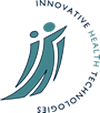Genetic Screening For Susceptibility To Disease: The Case Of Haemochromatosis
Abstract
In the future it is likely that genetic screening will increasingly include testing of adult members of the population in primary health care settings. Moreover, the extension of such genetic testing to include a wider range of diseases will mean that for many multi-factorial conditions individuals will be identified in terms of a probabilistic 'susceptibility' rather than the categorical identification of the presence or absence of a gene.
We shall conduct a case-study that gives us an early model of future population screening. A project in South Wales has introduced a new screening text for Haemochromatosis - a genetically transmitted condition that may cause iron overload. If it is identified in time then treatment is relatively straightforward; if not, then irreversible damage can occur. Otherwise healthy adults are being identified as susceptible to the condition through routine screening via blood donor sessions.
The research will consist primarily of interviews with individuals and members of their kindred who are asymptomatic but have been identified through the screening process. A comparative sample will be drawn from those with frank illness, and who are receiving treatment. We shall explore the personal and interpersonal consequences of random screening on those identified as being susceptible. We shall also compare the constructions of 'genetic disease' between our two samples. Interviews will also be conducted with clinicians and other professionals working in the area.
This is therefore a case study that potentially has very wide implications
for future policy and practice as predictive testing and adult screening
come on stream for an ever wider range of possible conditions.
Summary
Background
It has recently become possible to identify susceptibility to haemochromatosis
by DNA-based population screening techniques. We therefore have the opportunity
to study some of the consequences of such screening. Haemachromatosis may
provide a model of the kind of population screening likely to feature prominently
in the foreseeable future, with major consequences for social actors' self-perceptions,
insurance status, perceptions of risk, health and illness, although the
generalisability of this model is itself contentious, and some exaggerated
claims have been made for this new intervention. It is, therefore, especially
timely that we should document an early example of this kind of population
screening, its meaning and consequences for those who are involved.
Haemochromatosis itself is a common genetic condition but overt disease
from it is infrequent. Iron accumulation can damage the liver, heart, pancreatic
islets and other tissues. In late diagnosed cases, this process leads to
irreversible cirrhosis of the liver and perhaps a hepatic malignancy as
well as heart failure, diabetes mellitus and discolouration of the skin
("bronzed diabetes"). More often, however, the iron accumulation
is slow and organ dysfunction can be prevented or even reversed by phlebotomy.
Research Design
A series of adult members of the general population have been identified
as being at risk from blood donor sessions in South Wales. We therefore
have the opportunity to study those apparently healthy, symptomless individuals
who have unexpectedly discovered this susceptibility. We are also able to
compare them with a series of individuals with overt haemochromatosis receiving
treatment through primary health care.
The research will be conducted primarily through in-depth interviews with
informants, in order to identify the personal and interpersonal consequences
of being identified as 'susceptible' to the condition, and to document the
impact of such information on self-perception, concepts of health and illness,
knowledge and beliefs concerning genetics and disease-causation. Interviews
will also be conducted with scientists and health-care professionals involved
in the screening programme and the management of haemochromatosis.
Policy and Academic Implications
This particular project is part of a wider programme of collaborative research involving social scientists, medical geneticists, genetic scientists and others from Cardiff University and the University of Wales College of Medicine, constituting the Cardiff Genetics and Society Research Group. It will address directly the implications of new technology for risk perception and the social management of risk. We shall also be able to develop a grounded theorization of the lay understanding of genetic constitution and inheritance, fate and chance in shaping individuals' conceptions of the self, identity and the meaning of health and illness.
Working with and collecting data from geneticists, haematologists and counselors,
we shall also address the perceived implications for future policy and practice,
as new molecular technologies such as this move from research and pilot
stages to widespread use in service contexts
Contacts
Outputs
Journal Papers
Atkinson, PA; Latimer, J; Shaw, A; Featherstone, K. Dysmorphology and the Spectacle of the Clinic.
Featherstone, K; Atkinson, PA. The Disclosure of Genetic Information to Family Members: A Case Study.
Atkinson, PA; Parsons, E; Featherstone, K. Professional Constructions of Family and Kinship in Medical Genetics. New Genetics and Society. 20 (1) pp 5-24. 2001.
Conference Papers
Featherstone, K; Atkinson, P; Clarke, A. (Oral) Practical Kinship and the Disclosure of Genetic Information. Genetics Research Forum. 2000, University of Wales.
Shaw, A; Latimer, J; Clarke, A; Atkinson, P; Pilz D, Hurst J; Huson S, Featherstone K. (Oral) Presenting Clinical Perception and Clinical Judgement in the Construction of a Genetic Diagnosis. BSA Medical Sociology Conference. 2001, York.
Atkinson, P. (Oral) The Disclosure of Genetic Information to Family Members. BSA Medical Sociology Conference. 2001, York.
Atkinson, P. (Oral) The New Genetics and Personal Identity. Society for Social Studies of Science. 2001, MIT, Boston.
Latimer, J; Featherstone, K; Atkinson, P; Shaw, A; Clarke, A; Pilz, D. .(Oral) Diagnosing Dysmorphology: the Interaction of Genetic Technologies and Clinical Judgement in the Construction of a Genetic Identity. Society for Social Studies of Science. 2001, MIT, Boston.
Clarke, A; Featherstone, K; Atkinson, P. (Oral) The Disclosure of Genetic Information to Family Members. International Congress of Human Genetics. 2001, Vienna.
Featherstone, K; Atkinson, P; Clarke, A. (Oral) Practical Kinship and the Disclosure of Genetic Information. 7th EU Meeting on Psychosocial Aspects of Genetics. 2001, EU.
News
No news

